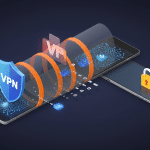Protecting Your Houston Business: Essential Network Security Tools
Small businesses in Houston face unique cybersecurity challenges. While large corporations have dedicated IT departments and substantial budgets, SMBs often operate with limited resources. However, this doesn’t mean they’re exempt from cyber threats. In fact, they’re often targeted precisely because they’re perceived as easier prey. Understanding and implementing essential network security tools is crucial for safeguarding your business’s data and maintaining customer trust.
The Reality of Cyber Threats for SMBs
Cybercriminals don’t discriminate based on business size. Ransomware attacks, phishing scams, and data breaches can devastate any organization. For Houston-based businesses, particularly those handling sensitive client information in industries like healthcare, finance, or legal services, the consequences of a security breach can be catastrophic.
Essential Network Security Tools for SMBs
Fortunately, numerous affordable and effective network security tools can significantly bolster your defense. Here’s a breakdown of key solutions:
- Firewalls:
- A firewall acts as a barrier between your internal network and the outside world, filtering incoming and outgoing traffic.
- Best Practice: Invest in a next-generation firewall (NGFW) that offers advanced features like intrusion prevention, application control, and deep packet inspection.
- Affordable Options: Consider open-source firewalls like pfSense or OPNsense, or budget-friendly hardware firewalls from reputable vendors.
- Antivirus and Anti-malware Software:
- Protect your systems from viruses, malware, spyware, and other malicious software.
- Best Practice: Ensure all devices, including desktops, laptops, and mobile devices, are equipped with up-to-date antivirus software. Schedule regular scans and enable real-time protection.
- Affordable Options: Many excellent antivirus solutions offer affordable plans for small businesses. Consider cloud based options that offer centralized management.
- Virtual Private Networks (VPNs):
- A VPN encrypts your internet connection, providing a secure tunnel for transmitting data, especially when employees work remotely or use public Wi-Fi.
- Best Practice: Implement a business-grade VPN for all employees who access company resources remotely.
- Affordable Options: Many VPN providers offer affordable business plans with multiple user licenses.
- Intrusion Detection/Prevention Systems (IDS/IPS):
- IDS monitors network traffic for suspicious activity, while IPS actively blocks malicious traffic.
- Best Practice: Integrate IDS/IPS into your network infrastructure to detect and prevent unauthorized access.
- Affordable Options: Open-source IDS/IPS solutions like Snort or Suricata can be cost-effective alternatives.
- Security Information and Event Management (SIEM):
- SIEM systems aggregate and analyze security logs from various sources, providing a comprehensive view of your network’s security posture. This helps in threat detection and incident response.
- Best Practice: Implement a SIEM solution to centralize log management and gain real-time visibility into security events.
- Affordable Options: There are cloud-based SIEM solutions designed for smaller budgets.
- Multi-Factor Authentication (MFA):
- MFA adds an extra layer of security by requiring users to provide multiple forms of identification, such as a password and a code from their mobile device.
- Best Practice: Enforce MFA for all user accounts, especially for access to critical systems and data.
- Affordable Options: Many cloud based services offer MFA as part of their services, or there are inexpensive MFA applications that can be used.
- Regular Security Audits and Vulnerability Assessments:
- Proactively identify and address security vulnerabilities in your network.
- Best Practice: Conduct regular security audits and penetration testing to assess your network’s resilience.
- Affordable Options: Consider partnering with a local cybersecurity firm like Krypto IT for affordable assessment services.
Best Practices for SMB Network Security
- Employee Training: Educate your employees about cybersecurity best practices, including phishing awareness and password management.
- Regular Backups: Implement a reliable backup and recovery system to protect your data in case of a cyberattack or disaster.
- Software Updates: Keep all software and operating systems up to date with the latest security patches.
- Strong Password Policies: Enforce strong password policies and encourage employees to use password managers.
- Network Segmentation: Divide your network into segments to limit the impact of a security breach.
Protect Your Houston Business Today!
Don’t wait until a cyberattack disrupts your operations. At Krypto IT, we understand the unique cybersecurity challenges faced by small businesses in Houston. We offer tailored solutions and expert guidance to help you protect your valuable data and maintain business continuity.
Contact Krypto IT today for a free consultation and learn how we can help you strengthen your network security.
Contact us today!
#Cybersecurity #SMBsecurity #HoustonTech #ITsecurity #DataProtection #SmallBusiness #TechTips #CyberAware #KryptoIT #HoustonBusiness #NetworkSecurity #MFA #Firewall #Antivirus






